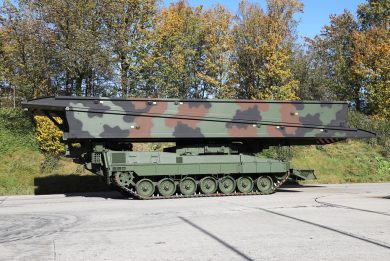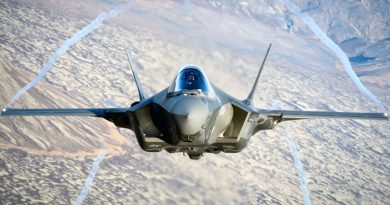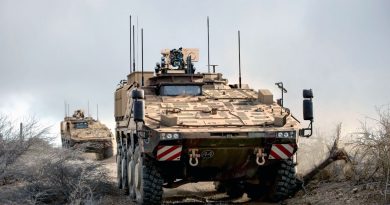► DSTA expands tech partnerships with Industry and Academia to bolster Singapore’s defence capability
Singapore’s Defence Science and Technology Agency (DSTA) is expanding its network of partners and areas of collaboration to gain strategic technology advantage for Singapore’s defence and security against future threats. DSTA signed more than nine partnerships with military partners, commercial companies and academia, at the sidelines of this year’s Singapore Defence and Technology Summit 20231 which was held from 22 to 24 March 2023.
DSTA’s Chief Executive, Mr Mervyn Tan said, “Evolving asymmetrical threats and the emergence of novel, disruptive technological innovations have placed renewed importance for DSTA to prepare ourselves for these new paradigms and be at the forefront of the latest technology trends. Recognising the importance of exchanging views and ideas with top government decision-makers, innovators and engineers from around the world, we brought together hundreds of leaders this week at the Singapore Defence Technology Summit. It is imperative that we adopt a very different collaboration strategy in light of the new threats and opportunities. With our partners in the defence sector, we are pushing beyond traditional areas such as platforms design to share data and harness smart and digital technologies – such as Artificial Intelligence (AI), Data Analytics and Machine Learning – to optimise efficiencies, improve systems performance and achieve sustainability. We will also be exploring ways to accelerate the adoption of suitable commercial dual-use innovations, including collaborations with digital tech start-ups and small and medium-sized enterprises, to meet Singapore’s defence needs. In addition, our partnerships with top notch academia will dive deeper into research on emerging technologies.”
The new collaborations were established with more than nine partners (Annex A) across a broad range of areas. DSTA’s collaboration with Lockheed Martin Corporation will expand to build data-driven analysis and diagnostics to drive DSTA’s efforts in developing its Fleet Management System. DSTA will also partner Saab AB to jointly deliver an advanced, digitalised and data-driven Multi-Role Combat Vessel. This will not only deepen DSTA engineers’ competencies in surface ships design but also in data analytics. DSTA’s partnership with Thales will be elevated to the co-development of new radar waveforms and to groom a pipeline of local radar expertise to better support the Singapore Armed Forces (SAF).
DSTA has also forged collaborations with Booz Allen Hamilton, Krauss-Maffei Wegmann and Safran to harness digital technologies to bolster the spectrum of defence capabilities – from cybersecurity to technologies to enhance the availability of traditional weapon systems and platforms. In its efforts to drive sustainability, DSTA will also work with ExxonMobil to adopt Hydrotreated Vegetable Oil for a fleet of vessels operated by the Republic of Singapore Navy.
Beyond enhancing the technical capabilities of existing platforms, DSTA will also tap on its partners’ deep pool of research knowledge and insights by working with Safran and Carnegie Mellon University to nurture its talent pool through internship opportunities, co-development of executive education programmes and courses, and sharing of academic publications and research information.
In addition, through initiatives such as the International Data Engineering Prize Challenge – a global challenge which called for a novel data ingestion and curation solution for counter-terrorism intelligence analysis, and jointly organised by DSTA and the U.S. Department of Defense’s Irregular Warfare Technical Support Directorate – DSTA also actively solicits for innovative solutions from small and medium-sized enterprises, start-ups, and even individuals.
“These partnerships put DSTA in a much stronger position to constantly innovate and be ready to leverage the latest technologies to enhance Singapore’s capabilities against future threats,” Mr Tan said.



